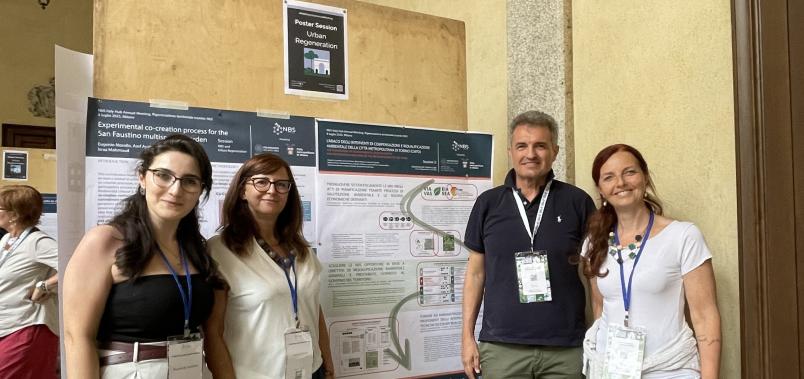
An Abacus to Guide Environmental Compensation Measures

Politecnico di Torino has developed a tool designed to plan territorial interventions effectively, with a focus on the environment and impact on local communities. This “abacus of solutions” helps local administrators make more informed and transparent decisions by considering real conditions, costs, benefits, and environmental objectives. From industrial facilities to buildings and wildlife protection measures, the Abacus offers solutions at different scales, all aligned with the environmental priorities of the Metropolitan City of Turin. The method can also be applied in other regions, as it promotes transparent decision-making, integration between research and administration, shared criteria for cost-benefit evaluation, and the dissemination of good practices. The project is the result of collaboration between Politecnico’s Interuniversity Department of Regional and Urban Studies and Planning-DIST and the Environmental Directorate of the Metropolitan City of Turin, with the participation of Claudio Coffano (Director of the Department for Environment and Sustainable Development), Luciana D’Errico (Environmental Assessment Office and agreement coordinator), and the Interdepartmental Group for Environmental Redevelopment and Compensation.
The initiative began in 2021 with a post-graduate internship in Territorial Planning at the Environmental Directorate of the Metropolitan City of Turin. “During the internship, we realised the need to strengthen and institutionalise our collaboration to address the environmental challenges arising from territorial projects systematically – explains Claudia Cassatella, Professor at DIST and scientific coordinator of the project – Politecnico’s involvement made it possible to adopt a cross-sectoral approach, drawing on multiple disciplines and areas of expertise”.
The first phase focused on developing and updating knowledge, including comparative analysis with Italian and European case studies. This was followed by the creation of a set of data sheets describing different types of interventions, which together form the “Abacus of Environmental Compensations”, a collection of 44 solutions grouped into 8 categories. These are designed to support decision-making processes related to the Strategic Environmental Assessment (SEA) and the Environmental Impact Assessment (EIA). The Abacus is now available on the Metropolitan City website.
The Abacus is not merely a catalogue but an operational handbook that provides criteria, methodologies, and design references to identify and implement appropriate environmental compensation measures for each territorial context. The proposed solutions range from large industrial or road infrastructure projects to smaller actions such as under-road tunnels for wildlife protection.
An innovative aspect of the Abacus is the cost estimation model developed by the Politecnico, currently unique in Italy for combining technical criteria with standard reference costs in this field.
After four implementation agreements, the Abacus reached its final version in 2025. Since the beginning, Politecnico has also focused on dissemination and training. In 2024, a training course was organised in collaboration with the Metropolitan City of Turin, involving over 400 professionals from various sectors. “We are now promoting the Abacus at the national level, comparing it with similar tools and sharing experiences with other regions”, adds Prof. Cassatella. The project was presented in Milan at the NbS Italy Hub Annual Meeting and will be showcased and discussed at the 22nd UrbanPromo – Projects for the Country edition.
This initiative demonstrates the value of collaboration between research and public administration. On one hand, the local authority benefited from updated knowledge, methodologies, and best practices; on the other, Politecnico could translate academic research into practical tools readily usable by local communities. Among the next objectives is the implementation of exemplary pilot projects in cooperation with local administrations.
“The collaboration with Politecnico has been extremely valuable, creating synergies between institutional and scientific fields in increasingly complex and integrated authorisation processes coordinated by the Metropolitan City of Turin. It also led to the creation of practical tools that can support both project teams and municipalities”, explains Claudio Coffano, Director of the Department of Environment and Sustainable Development of the Metropolitan City of Turin.
Knowledge as the foundation for decision-making – this is also true for environmental and territorial governance. Politecnico’s contribution stands out for its ability to integrate diverse expertise and promote good practices rarely known at the local level. Moreover, the university has successfully mediated between different positions through a scientific and technical approach, fostering the creation of networks with other local and national entities.